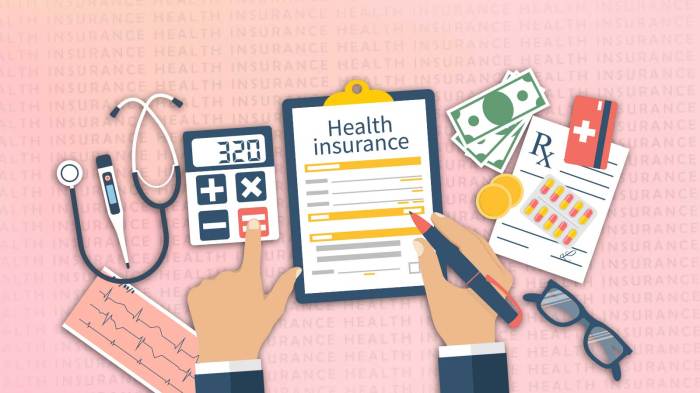How Preventive Health Saves on Insurance Costs: A Comprehensive Guide
Exploring the realm of preventive health and its impact on insurance costs opens up a world of possibilities. Dive into this informative journey to uncover how simple preventive measures can lead to significant savings on your insurance expenses.
Delve deeper into the strategies and choices that can not only enhance your well-being but also lighten the financial burden of healthcare costs.
Understanding Preventive Health
Preventive health refers to measures taken to prevent illness or disease before they occur. These measures include regular check-ups, screenings, vaccinations, and lifestyle changes to promote overall health and well-being. Preventive health is important in healthcare as it helps identify potential health risks early on, allowing for timely intervention and treatment.
By focusing on prevention rather than treatment, individuals can reduce the likelihood of developing chronic conditions and improve their quality of life.
Benefits of Preventive Health in Saving on Insurance Costs
Preventive health measures not only promote better health outcomes but also lead to significant cost savings on insurance. By detecting health issues early through screenings and check-ups, individuals can address problems before they escalate into more serious conditions that require expensive treatments.
For example, managing high blood pressure through medication and lifestyle changes can prevent costly complications like heart disease and stroke in the future.
- Regular screenings for conditions such as diabetes, cancer, and hypertension can help detect problems early and allow for timely intervention.
- Healthy lifestyle habits such as maintaining a balanced diet, exercising regularly, and avoiding tobacco can reduce the risk of developing chronic diseases.
- Vaccinations against common illnesses like flu and pneumonia can prevent costly hospitalizations and complications.
Preventive Screenings and Tests

Regular preventive screenings and tests play a crucial role in early detection of health issues, allowing for timely intervention and treatment. By identifying potential health problems before they become serious, individuals can take proactive steps to maintain their well-being and prevent costly medical conditions.
Common Preventive Screenings by Age Group
- For Adults:
- Cholesterol screening: Recommended every 4-6 years for adults over 20 years old to assess heart disease risk.
- Blood pressure measurement: Should be checked at least once every two years to monitor hypertension.
- Colonoscopy: Starting at age 50, regular screenings are recommended to detect colorectal cancer early.
- For Women:
- Mammogram: Women aged 40-75 should have a mammogram every 1-2 years to detect breast cancer.
- Pap smear: Recommended every 3 years for women aged 21-65 to screen for cervical cancer.
- Bone density test: Postmenopausal women should have this test to check for osteoporosis.
- For Men:
- Prostate-specific antigen (PSA) test: Men aged 50 and older should discuss with their doctor the benefits and risks of this test for prostate cancer screening.
- Testicular exam: Men should perform self-exams regularly and report any abnormalities to their healthcare provider.
- Colonoscopy: Similar to adults, men should start regular screenings at age 50 to detect colorectal cancer.
Regular preventive screenings not only help in detecting health issues early but also contribute to reducing healthcare costs in the long run. By staying proactive with preventive care, individuals can potentially avoid expensive treatments and interventions associated with advanced stages of diseases.
Healthy Lifestyle Choices
Adopting a healthy lifestyle can have a significant impact on both your overall health and insurance costs. By making smart choices in your daily habits, you can reduce the need for medical interventions and ultimately lower your insurance premiums.
Regular Exercise
Regular physical activity is key to maintaining good health. Exercise helps strengthen your immune system, improve cardiovascular health, and manage weight, reducing the risk of chronic diseases. By staying active, you can lower your chances of needing costly medical treatments and hospitalizations.
Balanced Diet
Eating a well-balanced diet rich in fruits, vegetables, whole grains, and lean proteins provides essential nutrients for your body to function optimally. A healthy diet can help prevent conditions like obesity, diabetes, and heart disease, which can lead to lower insurance costs due to reduced medical expenses.
Adequate Sleep
Getting enough quality sleep is crucial for overall health and well-being. Adequate rest supports immune function, mental health, and cognitive performance. By prioritizing sleep, you can boost your body's natural defenses and reduce the likelihood of illnesses that could impact your insurance premiums.
Stress Management
Chronic stress can have a negative impact on both physical and mental health. Learning how to manage stress through relaxation techniques, mindfulness, or therapy can help lower your risk of stress-related conditions and their associated healthcare costs. By taking care of your mental health, you can also save on insurance expenses.
Vaccinations and Immunizations

Vaccinations and immunizations play a crucial role in preventing diseases and reducing healthcare expenses. By getting vaccinated, individuals can protect themselves and others from serious illnesses, ultimately contributing to a healthier population and lower insurance costs.
Essential Vaccinations and Cost-saving Benefits
- Children: Routine childhood vaccinations, such as measles, mumps, rubella (MMR), polio, and hepatitis B, not only protect children from diseases but also save on medical costs associated with treating these illnesses.
- Adults: Vaccinations like influenza, tetanus, diphtheria, and pertussis (Tdap), and human papillomavirus (HPV) can prevent serious health complications and reduce the need for expensive treatments.
- Elderly: Vaccines for shingles, pneumonia, and influenza are essential for the elderly population to prevent infections, hospitalizations, and costly medical interventions.
Contribution to Healthier Population and Lower Insurance Costs
- Vaccinations not only protect individuals from diseases but also help in creating herd immunity, reducing the overall prevalence of infectious diseases in the community.
- By preventing outbreaks and reducing the burden on healthcare systems, immunizations lead to lower insurance claims and costs for both individuals and insurers.
- Investing in vaccinations is a cost-effective approach to healthcare that can save money in the long run by preventing expensive medical treatments and hospitalizations.
Final Review
As we conclude this discussion on how preventive health can save on insurance costs, it becomes clear that investing in your health today can result in substantial savings tomorrow. By prioritizing preventive care, you not only protect your well-being but also secure your financial future.
Questions Often Asked
What is preventive health?
Preventive health involves measures taken to prevent diseases or conditions before they occur, focusing on maintaining wellness and detecting potential issues early.
How can preventive screenings help in saving on insurance costs?
Preventive screenings can identify health issues at an early stage, allowing for timely intervention and preventing the progression to more costly conditions.
Why are vaccinations important in relation to insurance costs?
Vaccinations play a crucial role in preventing diseases, reducing healthcare expenses, and ultimately leading to lower insurance costs due to decreased likelihood of illness.



